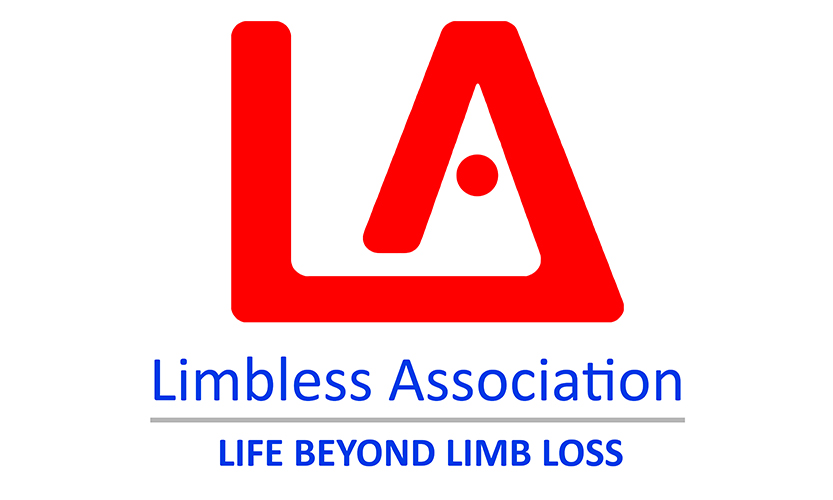As we enter spring - the growing season, farms become very industrious places, whether they handle livestock or grow crops and other food produce. As such, more jobs become available in the agricultural industry from spring right through the end...
How can we help?
Personal injury compensation claims solicitors
Our personal injury solicitors recognise that following an accident, many people are anxious about what is involved in bringing a claim for compensation. Our highly specialised, experienced, and dedicated team of personal injury compensation claims solicitors are focussed on making the process as simple and easy to understand as possible. Call our personal injury solicitors on 0161 696 6235 or complete our online enquiry form.
If you find yourself involved an accident that wasn't your fault, it can be a highly emotional and stressful time for you and your loved ones as you start to recover. It’s vital that you are able to seek out help when you need it, from experts who can get you the compensation you deserve.
Our personal injury solicitors offer years of combined experience in providing bespoke legal advice to clients from all walks of life. We pride ourselves in making the whole process as simple as possible and alleviating the stress that many people encounter during legal proceedings.
We’re here to help if you experience any kind of personal injury that wasn't your fault, so that you can receive the care and compensation you need on the road to recovery.
How can our personal injury solicitors help?
How can our personal injury solicitors help?
At Stephensons, our team of highly skilled personal injury compensation claims solicitors are dedicated to assisting you in your time of need. With years of experience and expert knowledge, we understand the physical, emotional, and financial strain that can result from personal injury incidents. Our compassionate solicitors are here to provide you with the legal support and guidance necessary to navigate through the complex process of obtaining compensation. Whether you have been injured in a road traffic accident, a workplace incident, or any other type of personal injury case, we are committed to fighting for your rights and securing the maximum compensation you deserve.
Who can our personal injury solicitors help?
Our personal injury solicitors are dedicated to assisting a broad range of clients who have suffered physical or psychological harm due to the negligence or intentional actions of others. This includes victims of road traffic accidents, workplace incidents, slips and falls, and more. We also extend our services to families who have lost loved ones due to wrongful death. Our team has worked with clients from all walks of life, including workers, drivers, pedestrians and cyclists amongst others. With a client-centric approach, we aim to ease the burden of the legal process, providing expert advice and fighting to secure the compensation you deserve, all while you focus on your recovery.
Why choose Stephensons for your personal injury claim?
If you have suffered injury of any kind our expert legal advisors can quickly assess whether you have grounds for a compensation claim. If so, an experienced personal injury professional will help you to claim the appropriate level of compensation.
Our personal injury lawyers work hard to ensure that our services are constantly evolving to the needs of our customers. This way, no matter what life throws at you we can seek the right compensation for your needs.
It all starts with a simple conversation, so if you have been injured in an accident that wasn't your fault, even if you are not sure if you have grounds for a claim, give us a call on 0161 696 6235.
There are a number of circumstances in which, unfortunately, Stephensons will be unable to assist you with any legal advice or support in regard to your personal injury claim. For example, if you have tried to claim in relation to this accident before, we will not be able to help. In addition to this, if you weren't injured as a result of the accident you are trying to claim for or if it has been more than 2.5 years since the date of your personal injury, we will be unable to assist you.
Our team was awarded 'Personal Injury/Clinical Negligence Team of the Year' at the 2022 Manchester Legal Awards and were commended in The Times Best Law Firms 2019 which is testimony to their expertise.
As part of our intervention work, being on the panel acting as SRA interventions agents, we have reviewed thousands of personal injury cases for the SRA in order to identify urgent matters and assist in protecting those clients’ interests. We are trusted by the SRA to competently review these matters and advise clients on the necessary next steps. In some cases and where appropriate, we are also able to assist the clients by taking on their cases and pursuing them to a successful conclusion. When a firm is closed down by the SRA, it can be a very concerning time for their clients and we do our best to help and reassure them, whilst ensuring that their interests are protected as far as possible in a very difficult situation.
Contact our personal injury solicitors
If you believe you may be eligible for compensation following an accident or injury, we encourage you to get in touch with our dedicated team of solicitors. Whether you have suffered a workplace injury, a road traffic accident, or any other personal injury, we are here to guide you through the process. Call us at 0161 696 6235 or fill out our online enquiry form to take the first step towards seeking the compensation you deserve.
Related services
Last year
we recovered over £2.9 million for personal injury clients
Winners of
Personal Injury / Clinical Negligence Team of the Year 2022 at the Manchester Legal Awards
We are trusted
by the SRA to review personal injury matters as part of our work as SRA intervention agents.
Do I have a personal injury claim?
It is difficult to determine if you have a personal injury claim without more information. Factors such as the nature and extent of your injuries, the circumstances surrounding the incident, and any parties at fault will need to be considered. It is recommended to consult with a personal injury solicitor for a professional evaluation of your case.
Is it worth claiming personal injury?
Whether or not it is worth claiming personal injury depends on the extent of your injuries and the impact they have on your life. If the injury has resulted in significant physical, emotional, or financial damages, then pursuing a personal injury claim may be worth it to seek compensation for your losses.
How do I choose a personal injury solicitor?
To choose a personal injury solicitor, consider their experience and expertise in handling similar cases, reputation, success rates, fees and payment options, and their ability to communicate effectively. It is also helpful to seek recommendations and read reviews to evaluate their past clients' experiences.
Can you claim personal injury without going to a doctor?
No, you generally cannot claim for personal injury without going to a doctor. In order to file a personal injury claim, you typically need documentation and evidence of the injury, which can only be obtained through a medical examination and diagnosis by a qualified healthcare professional.
What can you claim for in personal injury?
In a personal injury case, you may be able to claim compensation for medical expenses, lost wages, pain and suffering, emotional distress, property damage, and any other financial losses or damages resulting from the accident or incident that caused your injury.
What is classed as personal injury?
Personal injury refers to any physical or psychological harm suffered by an individual due to someone else's negligence or intentional actions. Examples include car accidents, slip and fall incidents, assault, and workplace injuries.
Who can claim for personal injury compensation?
Any individual who has suffered a personal injury as a result of someone else's negligence or wrongful actions can potentially claim for personal injury compensation, if meeting eligibility criteria. This includes victims of car accidents, workplace accidents, slip and falls, and more.
What is the average payout for a personal injury claim UK?
The average payout for a personal injury claim in the UK can vary greatly depending on the severity of the injury and other factors. However, according to data from the Judicial College Guidelines, the average payout for a minor injury is around £1,500 to £5,000, while more serious injuries can result in payouts of up to several hundred thousand pounds or potentially more.
If you believe you may be eligible for compensation following an accident or injury, we encourage you to get in touch with our dedicated team of solicitors. Whether you have suffered a workplace injury, a road traffic accident, or any other personal injury, we are here to guide you through the process. Call us at 0161 696 6235 or fill out our online enquiry form to take the first step towards seeking the compensation you deserve.
Starting a personal injury compensation claim
If you have had an accident which was not your fault and you would like to know whether you have a personal injury claim which might entitle you to compensation then please call us on . Our expert legal team can review your case and see how we can best help you, working with you and handling your situation with the sensitivity and care it deserves, as we understand that this can be a difficult time.
Personal injury claim advice
We will not charge you to discuss your case and one of our personal injury specialists will contact you by telephone, at your convenience, to assist you.
There is no obligation on you to pursue a claim and after discussing it with us, if you have decided not to go ahead then it will have cost you nothing and you will have lost nothing.
Funding your personal injury claim
If after having discussed it with us, it appears that you do have a claim which you may wish to pursue then there are a number of ways that it could be funded without you having to pay any money up front.
Our personal injury solicitors will always advise you on the best way to fund your claim. Often people already have legal expense insurance cover, and we will assist you to find out if you have this so that you will not have to pay anything to make your claim. Our personal injury solicitors can also work on a no win no fee basis.
Peace of mind with your personal injury claim
As we provide a nationwide service there is no need for you to come to our offices. However, if you would prefer face to face meetings these can be arranged.
In addition to helping you pursue your accident claim, our team of solicitors are experts can also provide you with advice on other very important issues at this time. For example, if you are unable to work because of your injuries we can assist you to ensure that you’re getting the full amount of state benefits to which you may be entitled to and that any housing or care needs arising from your injuries can be met while the claim is being made.
For a no obligation, discussion about these matters with one of our personal injury specialists please call us on 0161 696 6235.
The right personal injury claim solicitors for you
As a team or as individual lawyers, our personal injury specialists are active and leading members of, or approved by, key associations to enhance our ability to help you, including:
- Personal Injury Accreditation - The Law Society
- Members of the Association of Personal Injury Lawyers (APIL)
- Associate members and on the executive committee of the Credit Hire Organisation
- Limbless Association
- Disabled Motoring UK
Legal 500
Our specialist personal injury solicitors are held in the highest regard by the Legal 500 - The Legal 500 analyse the capabilities of law firms across the world, with a comprehensive research programme to provide an up-to-date vision of the global legal market.
"Stephensons Solicitors LLP has broad capability across the personal injury field, covering matters including fatal accidents, occupiers' liability, amputations and industrial disease claims. The Wigan-based team is led by the ‘enormously thorough and diligent‘ Danielle Callaway, who handles a range of work and has particular expertise in employers' and public liability claims, and fatal accidents. Shahina Sakeria is a further name to note."
"Danielle is a great solicitor; she is enormously thorough and diligent, but also creative and vigorous in her approach to a case. She has excellent communication with her clients, showing real sensitivity and care towards them.’
‘Danielle Callaway clearly has her clients’ best interests at heart." - 2024
"... advises on catastrophic injury claims, accidents at work, accidents abroad and industrial disease claims. Danielle Callaway has substantial experience in employers' and public liability, abuse and RTA claims."
"The practice as a whole offers a very professional service. Client confidentiality was kept at all times, and their customer service is second to none. The members of staff I spoke with were always helpful and supportive."
"Danielle Callaway is an outstanding lawyer. She is friendly, approachable and has an eye for detail. I have confidence that she is on top of the case and the issues that require attention."
"Stephensons Solicitors LLP has the ‘client at the forefront of its mind; the team will not compromise on quality and provides a timely and professional service to clients while ensuring that the client has at all times a good understanding of the process and the desired outcomes’. The ‘very supportive and understanding’ Danielle Callaway is also recommended… The practice is best known for representing clients in serious accidents at work, public liability and road traffic accident cases involving complex or fatal injuries. It has several niche areas of expertise such as advising on foreign accidents, amputations and industrial disease claims."
So why not contact our team today on 0161 696 6235 and find out how we can best help you. We have a number of locations across the country boasting a fine selection of talented personal injury solicitors, including Manchester, London, Warrington, St Helens, Wigan, and Bolton.
Useful links
We are North West & North East panel members for:

Awards & Accreditations




Frequently asked questions
Do you offer no win no fee?
We fund our claims on a ‘no win no fee basis’. Most of our claims have a maximum of a 25% deduction but there are exceptions, such as small claims ( where we take a maximum of 40% deduction if we are able to assist with them) and CICA claims which are risk assessed before we confirm the maximum deduction. The client doesn’t have to pay anything if the claim is unsuccessful. We take out insurance on the client’s behalf to pay for any disbursements incurred in the course of their case, if the case is ultimately unsuccessful.
How long does it take to find out if my case will be accepted?
We aim to respond to enquiries within one hour, if possible, and we will almost certainly call a client back within one working day. After we have taken full details, the case will be sent to solicitors for assessment which usually takes place within around three working days, when we will confirm to the client that we are taking their case on and will allocate them a case handler. Some more complicated cases can fall outside of these time frames but this is the general process.
Will I have to go for a medical?
Yes, as part of the claim process we would instruct an independent medical expert, or possibly more than one depending on the range of injuries.
Why can’t our fees be paid by the other side?
If the case is successful we do recover our fees from the other side. However, in the majority of cases, the fees we can recover from the other side are limited to a fixed fee which often does not cover the work we have done. We therefore have to deduct any shortfall from damages. We also charge a success fee to reflect the risk we have taken, for example in not getting paid at all if the case is unsuccessful. However, we cap our total deduction from damages at 25% (or whatever percentage is agreed at the outset).
Why there is a three year limitation on personal injury claims?
It’s the statutory period set by the Limitation Act 1980. This is not set by us. It is extremely difficult to bring a claim outside of this period. We also tend not to take on cases within six months of the limitation date as this does not afford us sufficient time to properly investigate the case.
loading staff
The true extent of child abuse in England and Wales is unknown, which is partly because survivors find it difficult to speak about what happened to them. In addition to this, it is not something that is often discussed or well understood. But there are...
staff reorder - personal injury
- Louise Griffiths
- Danielle Callaway
- Robert Donlan
- Pauline Smith
- Shahina Sakeria
- Katie Plappert
- Stephen Collins
- Toni Lowery
- Andrew Dunne
- Subiha Khezar


